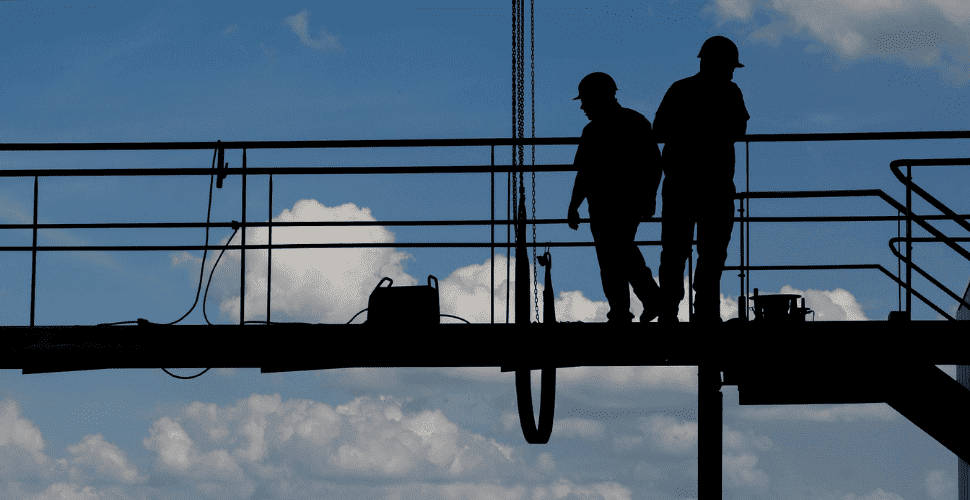Has the World Cup led to lasting improvements for migrant workers in Qatar?

In three weeks the World Cup begins in Qatar, the world's largest sporting event that has been mired in controversy surrounding the exploitation of hundreds of thousands of migrant workers from countries including Nepal, India and Bangladesh, reports of forced labor, and unexplained deaths.
Passing reforms in preparation for the World Cup
Under the world's gaze in preparation for hosting the tournament, Qatar has passed a series of reforms to the exploitative kafala system which leaves low-paid migrant workers at high risk of forced labor and abuse by tying their immigration status to their employer. But are workers really feeling the benefits and, once the World Cup is over, will implementation of these reforms continue?
Restrictions on migrant workers changing jobs without their employer's permission were abolished in 2020 and a monthly minimum wage of 1,000 Qatari riyal (around $275) was introduced. Geoffrey, a Kenyan migrant worker in Qatar explains that this minimum wage is still far too low, especially considering how many billions of dollars the World Cup is expected to rake in. Though a Wage Protection System was announced to ensure migrant workers' are receiving their wages from employers, many workers are unaware of their rights.
“I've seen a lot of good people suffer”
Migrant workers continue to report exploitation with some risking arrest and deportation for demanding their unpaid wages. “I have spoken to thousands of them. They don't know their rights; their contracts are violated; there is discriminatory pay […] The first time I was detained in Qatar was for trying to change my job. I could deal with it because I know my rights, but what about the thousands of workers who don't know their rights?” explained Geoffrey.
Speaking to the Guardian, a construction manager shared their perspective:
The companies I work for are just getting away with everything. There are many people now walking around Qatar who have lost their jobs, haven't received their end-of-service benefits or months of salary. I've seen a lot of good people suffer and it's absolutely linked to the World Cup.
Qatar wanted to build everything as cheaply as possible. All the big contractors were fighting one another to win the work. They were winning jobs at any cost. As Qatar started slowing down its construction [before the World Cup], all these contractors then started to face problems … and where they save their money is by not paying suppliers or our salaries and end of services.
Who is responsible?
The world's governing football body, FIFA, has yet to publicly announce its intention to set up a compensation fund to support the families of those migrant workers who have died, and pay exploited migrant workers their owed wages. Under the UN Guiding Principles on Business and Human Rights, FIFA has a responsibility to remedy the abuse of workers who have been integral in developing the infrastructure necessary for the World Cup, even if the Qatari authorities are dragging their feet on implementing key reforms.
Freedom United is urgently calling on FIFA to set up a compensation fund of at least $440 million, equivalent to the tournament's prize money. We welcome the French Football Federation and U.S. Soccer who in recent weeks have publicly supported calls on FIFA to compensate workers.
Send Football Associations a message today!This “Eyes on Trafficking” story is reprinted from its original online location.
 ABOUT PBJ LEARNING
ABOUT PBJ LEARNING
PBJ Learning is a leading provider of online human trafficking training, focusing on awareness and prevention education. Their interactive Human Trafficking Essentials online course is used worldwide to educate professionals and individuals how to recognize human trafficking and how to respond to potential victims. Learn on any web browser (even your mobile phone) at any time.
More stories like this can be found in your PBJ Learning Knowledge Vault.
EYES ON TRAFFICKING
This “Eyes on Trafficking” story is reprinted from its original online location.
ABOUT PBJ LEARNING
PBJ Learning is a leading provider of online human trafficking training, focusing on awareness and prevention education. Their interactive Human Trafficking Essentials online course is used worldwide to educate professionals and individuals how to recognize human trafficking and how to respond to potential victims. Learn on any web browser (even your mobile phone) at any time.
More stories like this can be found in your PBJ Learning Knowledge Vault.
